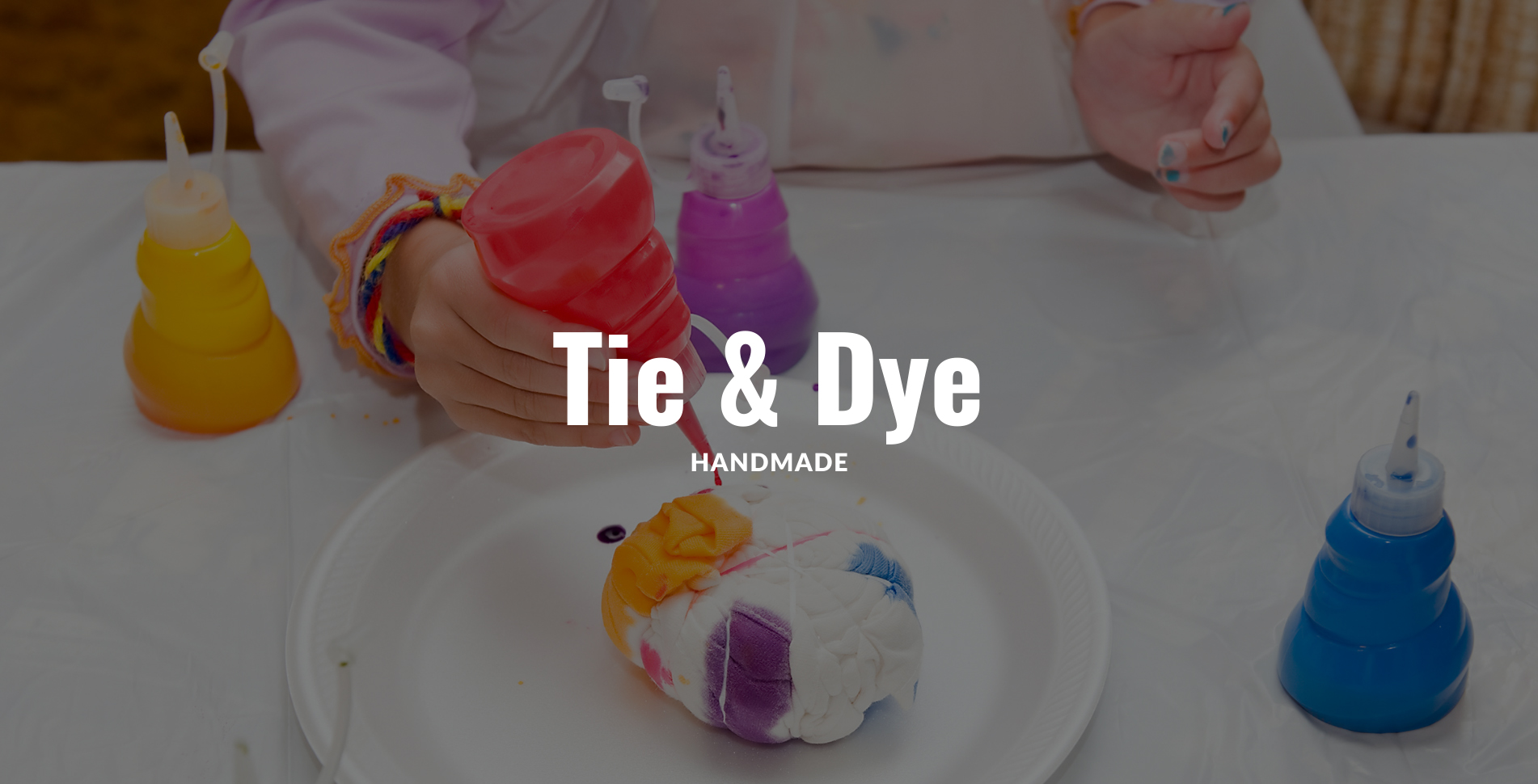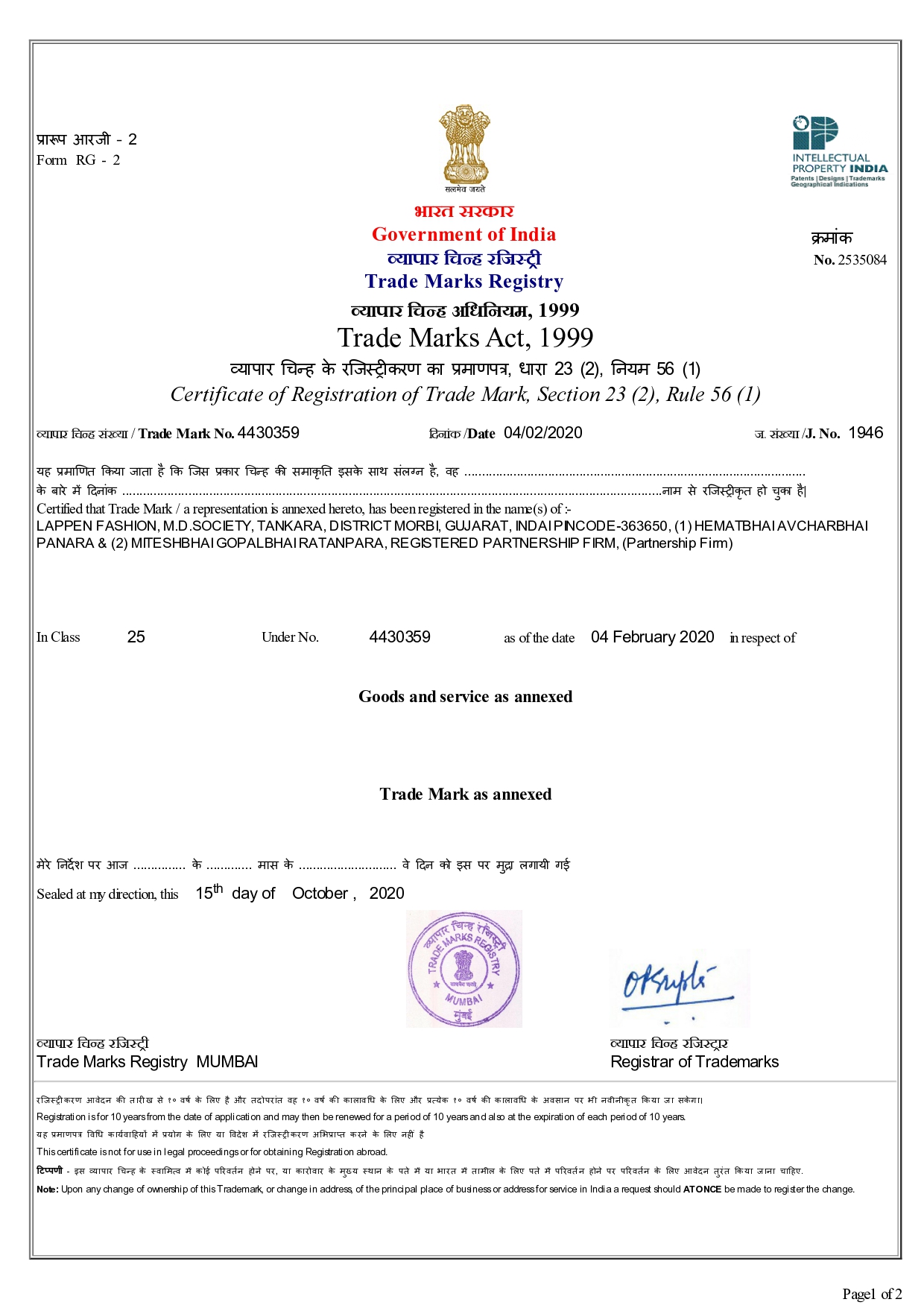About Us

Welcome to LAPPEN
Lappen Fashion is a Manufacturer and E-Retailor Company, founded in 2018 we have started our journey with a Small project As Seller on the E-Commerce Platform, and by expanding our vision and mission we have joint venture manufacturing garments in Ahmedabad and Corporates in Himmatnagar as of now (a Near city of Ahmedabad),
Our Philosophy is to provide pristine and Premium Collection at an affordable range.
Our Brand Owners Mr. Hematbhai panara industrialists in the field of ceramic industries since 2000
BEST PRODUCTS HERE EVERY DAY
At Lappen We Believe in Organic Growth of Brand and Organic World for the peaceful Living.
So Every Products is Guarantee of Organic Life Which Doesn't Harm the Nature and Life Living.

Our CERTIFICATION
MSME Sustainable (ZED) Certification
MSME Sustainable (ZED) Certification is an extensive drive to create awareness amongst MSMEs about Zero Defect Zero Effect (ZED) practices and motivate and incentivise them for ZED Certification while also encouraging them to become MSME Champions.
MSME Sustainable (ZED) Certification can be attained in THREE Levels after registering and taking the ZED Pledge:
ZED Pledge
Certification Level 1: BRONZE
Certification Level 2: SILVER
Certification Level 3: GOLD
Every MSME that embarks on the journey of ZED will have to take a “ZED Pledge” before applying for a ZED Certification Level (Bronze, Silver, Gold).
Certification on WASH Standard & other capacity building measures through MSME KAWACH will be available to MSMEs immediately after taking ZED Pledge.
After taking the ZED Pledge, the MSME can apply for any Certification Level if it feels that it can fulfil the requirements mentioned in each level. The intent of taking a ZED Pledge is to take a “pre-commitment” or a solemn promise by MSMEs to uphold the values of Zero Defect Zero Effect in their practices and to urge them to move ahead on the journey of ZED.
ISO 14001 Certification
ISO 14001 sets out the criteria for an environmental management system and can be certified to. It maps out a framework that a company or organization can follow to set up an effective environmental management system.
Designed for any type of organization, regardless of its activity or sector, it can provide assurance to company management and employees as well as external stakeholders that environmental impact is being measured and improved.
The ISO 14000 family of standards are developed by ISO Technical Committee ISO/TC 207 and its various subcommittees. For a full list of published standards in the series see their standards catalogue.
ISO 14001 provides requirements with guidance for use that relate to environmental systems. Other standards in the family focus on specific approaches such as audits, communications, labelling and life cycle analysis, as well as environmental challenges such as climate change.
ISO 9001 Certification
ISO 9001 is defined as the international standard that specifies requirements for a quality management system (QMS). Organizations use the standard to demonstrate the ability to consistently provide products and services that meet customer and regulatory requirements.
Organizations of all types and sizes find that using the ISO 9001 standard helps them:
Organize processes
Improve the efficiency of processes
Continually improve
All organizations that use ISO 9001 are encouraged to transition to ISO 9001:2015 as soon as possible. This includes not only organizations that are certified to ISO 9001:2008, but also any organizations involved in training or certifying others
CE Marking
CE marking indicates that a product has been assessed by the manufacturer and deemed to meet EU safety, health and environmental protection requirements. It is required for products manufactured anywhere in the world that are then marketed in the EU.
On commercial products, the letters CE (as the logo CЄ) mean that the manufacturer or importer affirms the goods' conformity with European health, safety, and environmental protection standards. It is not a quality indicator or a certification mark. The CE marking is required for goods sold in the European Economic Area (EEA), but is also found on products sold elsewhere that have been manufactured to EEA standards.
The CЄ mark indicates that the product may be traded freely in any part of the European Economic Area, regardless of its country of origin. It consists of the CE logo and, if applicable, the four digit identification number of the notified body involved in the conformity assessment procedure. "CE" is the abbreviation of "conformité européenne" (French for "European conformity")
Trademark
A certification mark is a mark placed on a product to show that it complies with all applicable rules and regulations. It enables a business to demonstrate to customers that its goods are of a high standard, meet all regulations, and have the required documentation
While standard trade marks are designed to distinguish your goods or services from another trader, certification trade marks assure that your goods or services meet a particular standard or hold a certain characteristic. It might indicate that it is:
Of a particular quality
Made from particular materials or ingredients
Manufactured using a particular production method
Sourced exclusively from or made in a specific geographic location.
INDUSTRIES & PRODUCTION
Let's Experience Exclusive Quality
Tie & Dye
handmade process of dying the article at best look
WELL DESIGNED
We Provide Clothes More Than Just Stitched Fabric
LAPPEN is the largest peer-to-peer comparison initiative in the tie-dye industry & hand made products from India. It tracks the apparel material and home textile sector’s progress toward more sustainable materials sourcing, as well as alignment with global effort. Besides the regular production became the largest exporter.









